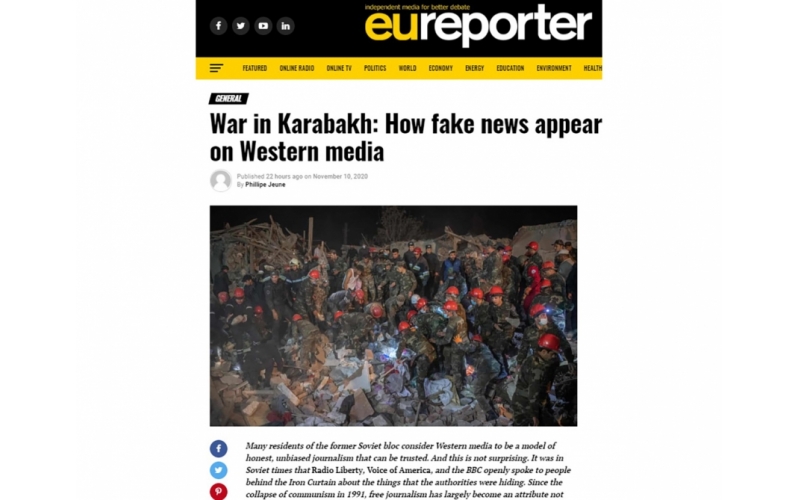
The article says: “With the resumption of hostilities in Nagorno-Karabakh, which is internationally recognized as part of Azerbaijan, numerous news reports began to appear in the media about the two countries involved in the conflict: Armenia and Azerbaijan. Surprisingly, some Western media outlets demonstrated an openly partisan attitude in reporting the conflict.”
“On 30 September, a BBC story claimed that several hundred mercenaries were allegedly transported to Karabakh before the outbreak of the war, from the Syrian territory controlled by Turkey. The publication claimed that it received this information via a messenger from one of the militants, but immediately noted that it could not confirm the veracity of his words,” the article mentions.
“Around the same time, France 24’s The Observers programme published several user-generated videos that allegedly showed Syrian militants preparing to leave for Azerbaijan. The main ‘evidence’ of these videos’ authenticity was that the soldiers in the film spoke Arabic and discussed the cities of Aleppo and Idlib,” the author says.
“It is surprising that such obvious falsifications somehow get on to the pages of leading foreign publications. Yerevan has so far been unable to provide any evidence of the presence of so-called mercenaries in Karabakh fighting for Azerbaijan,” the article emphasizes.
“It is clear that the Karabakh conflict, like any other war, is a huge tragedy. Throughout the fighting, civilians on both sides have suffered. However, the Western press has failed to focus its attention on certain developments. In particular, the shelling by Armenian troops of the peaceful city of Ganja - located far beyond the combat zone - remained widely unnoticed by the world’s media,” the article says.
“In modern armed conflicts, confrontation on the information front is becoming as important as it is on the battlefield. After all, the enemy can present even a bloodless operation as a ‘war crime’, setting the whole world against the winner. As the Karabakh conflict illustrates, the real state of affairs at the frontline is not always reflected accurately in the international media. The press needs to consistently present the real facts without bias, so that the truth of this war can be told for posterity,” the article concludes.
Views: 260
